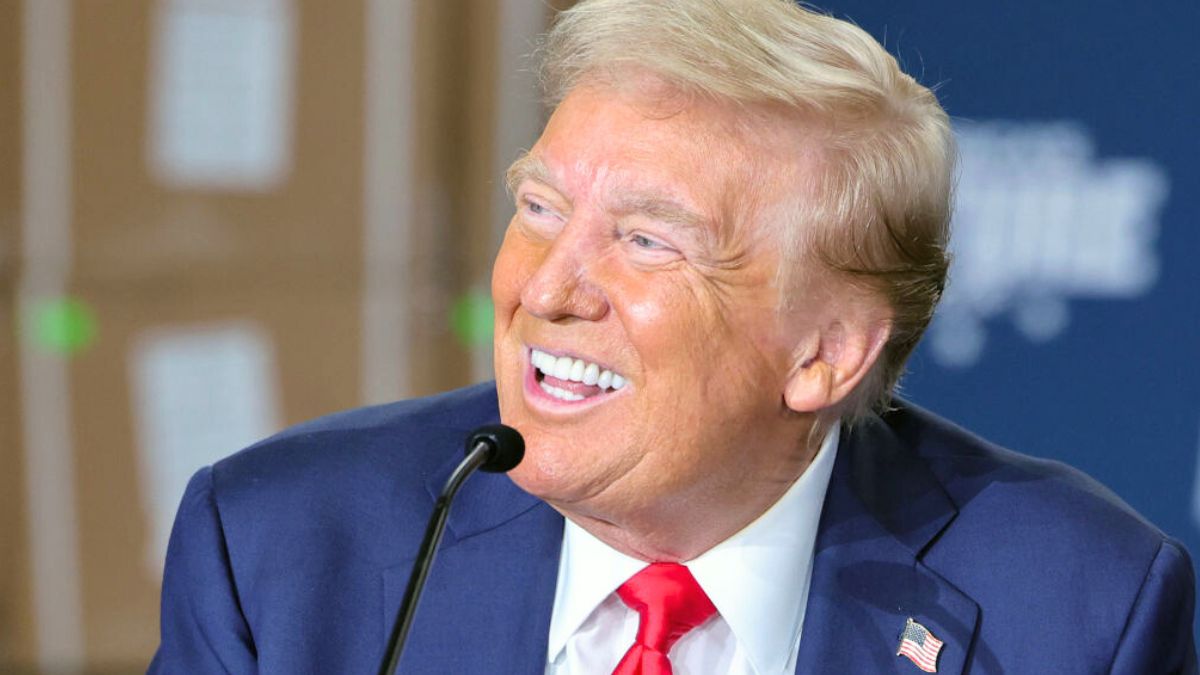‘If people don’t come back to work…’: Trump threatens remote workers and promotes mass layoffs

President-elect Donald Trump intends to irradicate remote work.
Like many workplaces, during the prolonged lockdowns caused by the COVID-19 pandemic, many Federal employees pivoted to working from home. Like the greater workforce, these Federal employees have not officially integrated into the office full-time.
At a press conference from Mar-a-Lago on Monday, Trump declared, “If people don’t come back to work, come back into the office, they’re going to be dismissed. ” He insisted that his government would cut back on payable remote hours, forcing workers into the office.
However, federal unions have remote and hybrid work woven into contracts for their workers, making Trump’s intentions easier said than done. Biden’s administration recently negotiated an agreement with the Social Security Administration union representing more than 40,000 employees with extended remote work options to 2029.
Remote or hybrid work has grown increasingly popular among workers due to the flexibility of the work environment and the economic reduction of travel expenses and time. Remote/hybrid work also benefits parents with young children who can save on childcare. The Standford Report found that workers were far less likely to quit their jobs working hybrid hours. Research expert Ahmed Sherif found that hybrid employees’ work/life balance increased by 75% and their productivity by 52%. It is, therefore, statistically beneficial to the United States federal agency to meet the Social Security Administration union at the negotiating table with a remote-forward attitude.
This contractual announcement, however, seems to be the trigger point for Trump’s address as he later admits his willingness to go to court against the American Federation of Government Employees union. The president of which, Everett Kelley, responded to Trump’s comments with, “More than half of federal employees cannot telework at all because of the nature of their jobs, only ten percent of federal workers are remote, and those who have a hybrid arrangement spend over sixty percent of working hours in the office.” Essentially, it placates the president-elect that this issue is far less dramatic than Trump’s administration presents it to be.
With the President-elects new commission spearheaded by Elon Musk and Vivek Ramaswamy, “Department of Government Efficiency,” which has previously petitioned to eliminate 75% of the federal workforce, cut $2 trillion from the budget and to their joint op-ed to the Wall Street Journal the pair wrote, “Requiring federal employees to come to the office five days a week would result in a wave of voluntary terminations that we welcome.” It is becoming clear that government job security is being flushed in favor of corporate-style liquidation.
Although these cuts may help soothe the United States deficit, they may also negatively impact the United States economy, as so many government employees suddenly lose their jobs. These decisions may also land the government in legal battles, as these hybrid solutions are enforceable under contract law. Trump’s administration could break those contracts illegally, which, left unchallenged, could lead to a devastating precedent for union workers.
Have a tip we should know? tips@themarysue.com